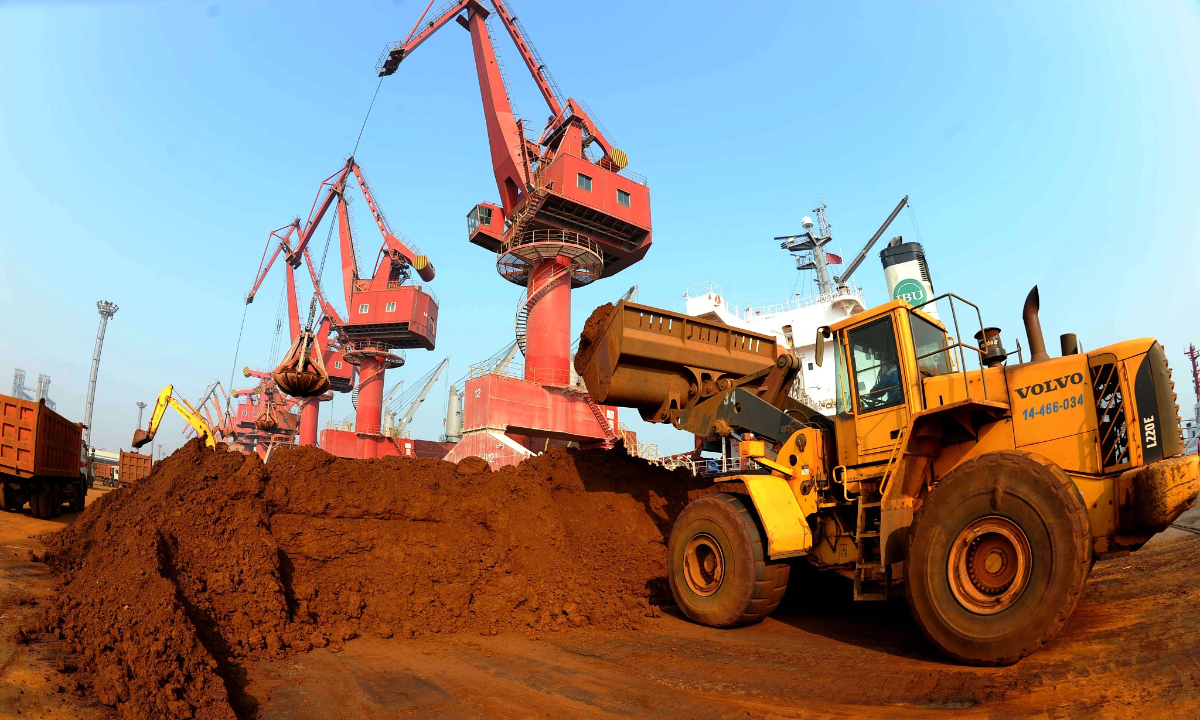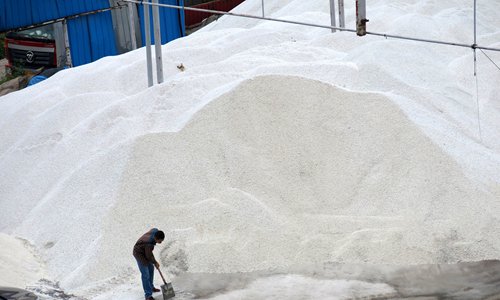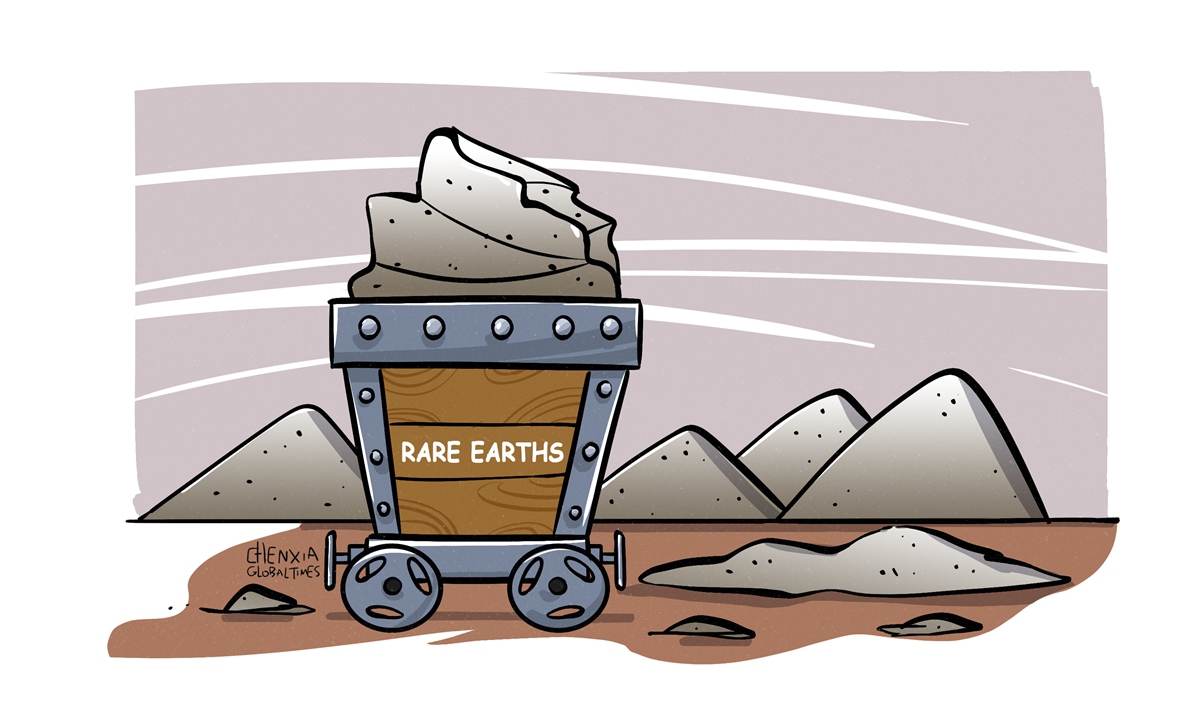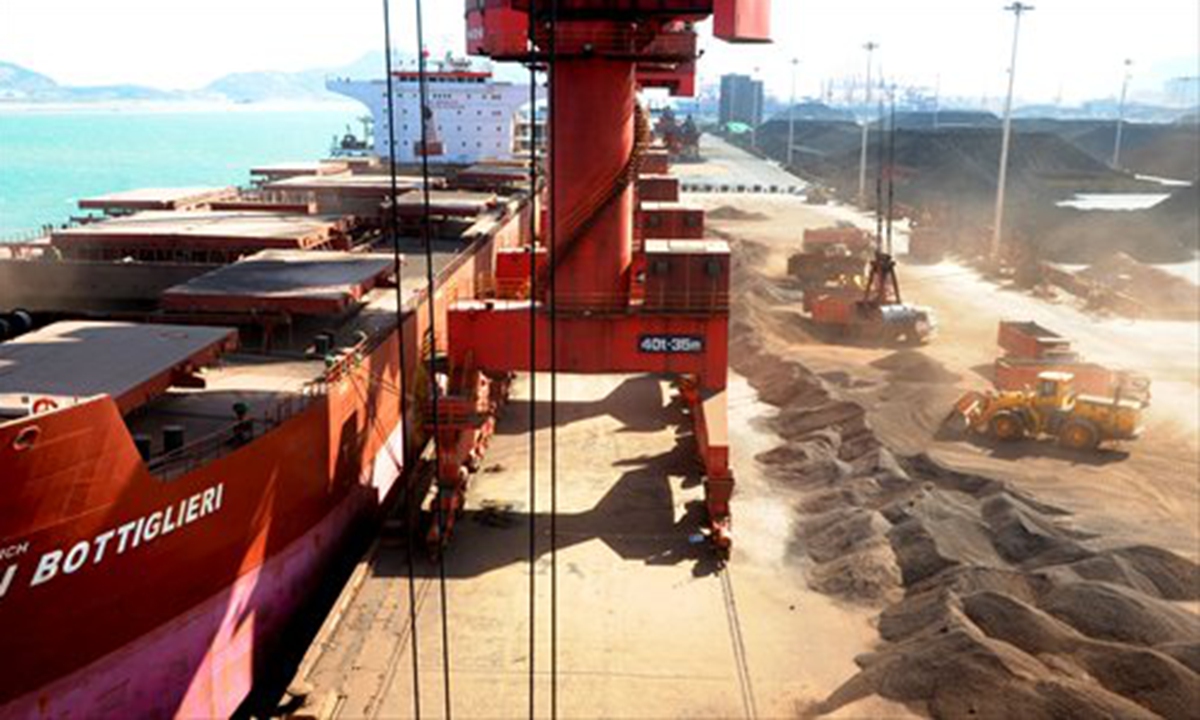
rare earth Photo:VCG
China's restriction on the export of some rare-earth technologies has stirred a new wave of conspiracy theories and geopolitical speculation about the global supply chain among Western media outlets. Yet, there is no indication that the rare-earth supply chain is at risk. Does the market really need to over-interpret the situation, just because the West may find it isn't easy to build a supply chain outside China?
China's Ministry of Commerce (MOFCOM) and Ministry of Science and Technology on Thursday jointly published a shortened version of the Catalogue of Technologies Prohibited and Restricted from Export, according to a statement on the website of the MOFCOM.
Unsurprisingly, instead of mentioning that China has proactively shortened the catalogue of technologies covered by export restrictions, most Western media outlets produced widespread coverage about the part that involves China's restriction on exports of technology to extract and separate rare earths and to produce rare-earth metals.
For instance, a Bloomberg report, entitled "China Turns Up Heat on Trade With Rare Earths Tech Curbs," said that China's move "puts the vital materials front and center as a tit-for-tat trade war on technology worsens."
While these media reports may suggest that China's curbs on technology exports exacerbate geopolitical rivalries, their overreaction toward the development, which won't have actual implications for the supply chain, is unfounded.
There is no denying that China has over 30 percent of the world's share of rare-earth mineral resources and has been meeting over 70 percent of the world's need for them.
While some Western critics see rare-earth minerals from China as a source of supply chain risks, there is no indication that China has tried to exploit its dominance in the global rare-earth industry for geopolitical purposes. Even as the US and its Western allies have pursued "decoupling" from China and continuously escalated their suppression of Chinese companies and Chinese manufacturing, China's adjustments with regard to the rare-earth sector have not had negative impact on global supply chains. Statistics from Chinese customs showed that China exported 4,205.8 tons of rare earths in November, and its total rare-earth exports in the first 11 months of this year amounted to 48,867.7 tons, up 10 percent year-on-year.
Moreover, according to data from the Association of China Rare Earth Industry, the rare-earth price index was on a slow decline in November, another sign of overall stability in the rare-earth supply chain.
This is not the first time that China's adjustment in rare-earth-related policies has touched the sensitive nerves of the West. Behind the Western anxiety is the increasing frustration toward US efforts to build a rare-earth supply chain outside China.
According to a report from The Wall Street Journal, Western companies trying to break the grip on rare-earth magnets are encountering unusual hurdles, including but not limited to environmental protection, high costs, technology problems and dispersed supply chains.
Deep down, Western efforts to build a rare-earth supply chain outside China are driven by the desire to avoid their companies being cut off supplies. But China is not the US, and it will not do what the US has done to disrupt supply chains just to hurt others.
This does not mean that China cannot maintain its industry chain advantages through certain means that are in line with international practices. China's advantage in the rare-earth sector is based not only on pricing or quantity, but also on a set of efficient processing technologies and procedures.
It took China decades of hard work and great costs to obtain such advantages in the rare-earth industry. It is entirely reasonable for China to take appropriate measures to protect technologies from leaking to competitors for the purpose of its own economic security.



